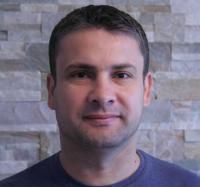Welcome to AI-EFD Workshop
The AI-EFD Workshop explores recent scientific and technological advances in applying artificial intelligence to the detection and prediction of falls among the elderly. Fall detection among older adults is a crucial area for both home-based and institutional healthcare systems to support healthy aging. This field focuses on the integration of sensors to collect human movement data, the extraction of relevant features, and the accurate processing of this information to develop systems that are precise, reliable, and responsive, especially in aging societies. Despite significant progress, several challenges remain, including real-world deployment, data heterogeneity, user acceptance, privacy concerns, and ethical considerations. In response to the increasing demand for automated, privacy-preserving, and context-aware monitoring in public and private healthcare facilities, this workshop emphasizes the use of advanced AI techniques. This includes deep learning, computer vision, sensor fusion, large language models, and explainable artificial intelligence, applied across various sensing modalities for effective fall detection and prediction among older adults.
Topics of Interest
Topics include, but are not limited to:
- Advanced ML models (Deep Learning, Reinforcement learning, Federated Learning, etc.) for fall detection/prediction )
- Novel sensing modalities (Wearables, Ambient, Vision) and sensor fusion techniques
- Handling data challenges (e.g., Imbalance, Scarcity, Augmentation, Benchmarks)
- Context-aware fall detection and differentiation from Activities of Daily Living
- Explainable AI (XAI) and trustworthy AI for fall detection systems
- Personalization, adaptation, and user-specific models
- AI for fall risk assessment and prediction
- Real-world deployment, system evaluation, and user acceptance studies
- Ethical considerations, privacy-preserving methods, and data security
Keynote Speaker

Professor Azzedine Boukerche
University Professor Emeritus (Distinguished Professor) and Canada Senior Research Chair at the University of Ottawa, Ontario, Canada.
Professor Azzedine Boukerche will deliver an insightful talk on the future of AI and Sensor Networks in elderly care and the challenges in developing robust fall detection systems. (More details coming soon).
Important Dates
- Submission Deadline: July 1, 2025
- Notification of Acceptance: August 15, 2025
- Camera-Ready Deadline: August 30, 2025
- Workshop Date: October 21, 2025 (During Healthcom 2025)
Workshop Organizers
CPJ. Moustafa Fayad
received the Ph.D. in Artificial Intelligence and Decision-Making from Université de Paris Cité in 2021. He is currently a junior professor at Université Marie et Louis Pasteur – SINERGIES laboratory after one postdoctoral position at the SINERGIES laboratory. His research interests focus on technological challenges in the field of digital health through artificial intelligence, emphasizing both practical and theoretical issues. His main topic concerns the detection of falls in the elderly.

Dr. Ahmed Mostefaoui
is currently an associate professor HDR at Université Marie et Louis Pasteur, France, since 2000. He received the M.S. and Ph.D. degrees in computer science from Ecole Normale Suprieure de Lyon (France) in 1996 and 2000, respectively. His research interests are in distributed algorithms in wireless ad-hoc and sensor networks emphasizing both practical and theoretical issues, multimedia systems and networking, in particular, distributed architectures.
Dr. Mohammed Amine Merzoug
has been an Associate Professor in the Computer Science Department at the University of Batna~2 (Algeria) since July 2023. Prior to this, he held positions at the University of Lyon/University Gustave Eiffel, Université Marie et Louis Pasteur, the FEMTO-ST Institute, the University of Batna~2, and the University of Batna~1. He received the HDR qualification in computer science from the Algerian Ministry of Higher Education and Scientific Research in 2023 and the Ph.D. degree in computer science in 2019 from the University of Bejaia (thesis prepared jointly at the University of Bejaia and Université Marie et Louis Pasteur). His research interests include distributed systems and artificial intelligence.
Technical Program Committee
Our Technical Program Committee comprises experts from academia and industry who will ensure a high-quality review process.
- Dr. Réda Yahiaoui, University of Marie & Louis Pasteur, France
- Dr. Yoshimasa Sagawa, University of Marie & Louis Pasteur, France
- Dr. Nassima Fatma-Zohra Nacer, ECE-Paris Engineering School, France
- Dr. Jad Bassil, University of Marie & Louis Pasteur, France
- Pr. Gabriele Gianini, University of Milan, Italy
- Pr. Ann Svensson, University of West, Sweden
- Dr. Kabalan Chaccour, University of Antonine, Lebanon
- Pr. Kamal Ghoumid, University of Mohammed First, Morocco
- Dr. Elmar Yusifli, Atisol solutions for prodessionals, France
(List will be updated)


